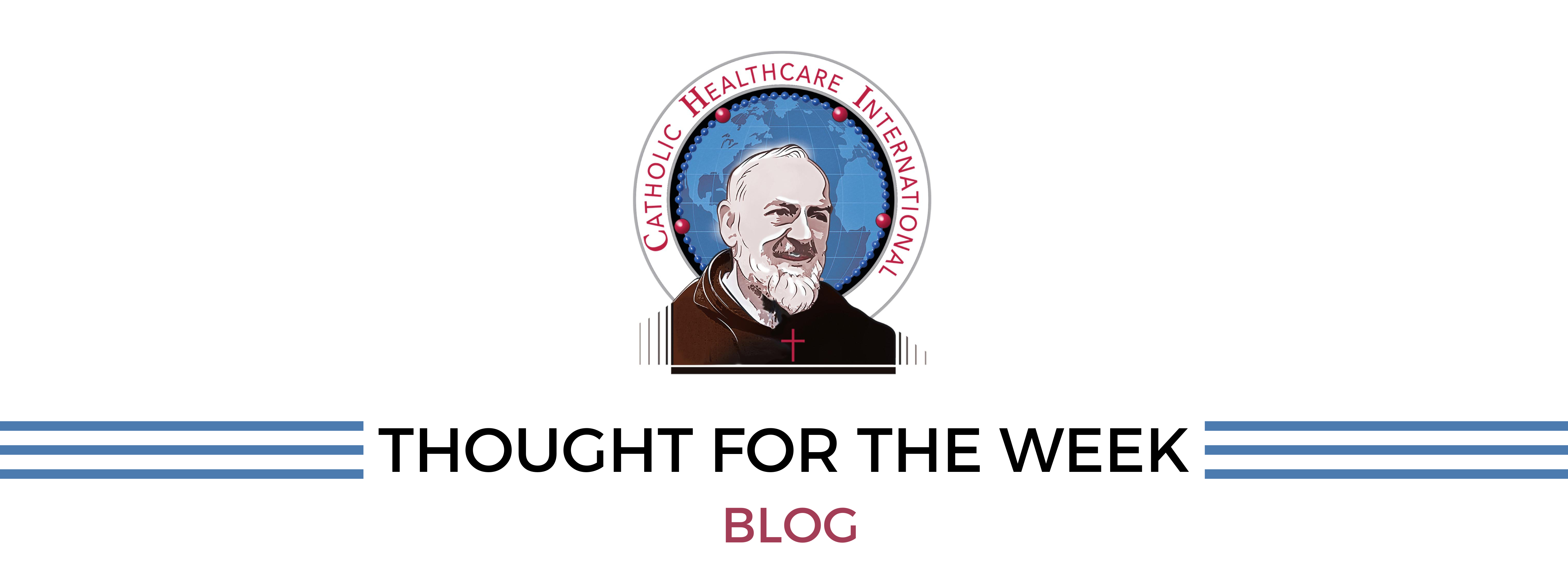Better promiscuity through chemistry
The other night, I was watching Bob’s Burgers on one of the cable channels (I forget which one) when a remarkable commercial came on. Bob’s Burgers is an adult-oriented cartoon about a struggling proprietor of a hamburger restaurant and his eccentric family. It is quite clever, actually, and entertaining, without being too offensive. So, as I was watching this cartoon (around 8 PM, Central) a pharmaceutical commercial came on for a drug named Apretude. Even in the bizarre world of pharmaceutical-to-consumer advertising, this commercial reached a new and disturbing low. To a level approaching Cinemax, soft-core pornography, the commercial was a homoerotic series of men, including transvestites, making come hither glances at one another, dancing, embracing and kissing. Even in a world where the homosexual/trans agenda is pushed on society at every opportunity, this was pretty shocking. (For those of you who are curious, and strong of stomach, the commercial can be seen here: https://m.youtube.com/watch?v=4qNAjNGWY1c .)
Offensive TV commercials are nothing new and, like used car lots and negative political ads, sometimes even thrive on shock value. Likewise, same-sex couples are prominent in advertising, as companies increasingly want to be seen as “woke” and inclusive in order to sell more of their trinkets and baubles. What is disturbing here, and this should also be disturbing to the homosexual community, is what it says about their community, and society, in general.
Apretude is one of a small group of pharmaceuticals developed and marketed for pre-exposure prophylaxis (abbreviated PrEP) for HIV, the virus that causes AIDS. Apretude is an injection, taken once every two months, while the other two drugs used for PrEP, Discovy and Truvada, are pills taken daily. All of these medications are part of a group considered as antivirals. Both Discovy and Turvada are combinations of two antivirals, while Apretude is a single drug. In one form or another, these drugs have been used to treat HIV and hepatitis infections. Basically, these drugs prevent viruses from replicating and permit the body’s immune system to then eliminate said viruses.
AIDS is a devastating virus. I graduated from medical school in 1988 and, like other physicians of my generation, was on the front lines of the AIDS crisis, watching helplessly and attempting primitive therapies, while young people, in the prime of their lives, were systematically exterminated by a disease that we barely understood and couldn’t treat. Initially, HIV/AIDS was seen nearly exclusively in homosexual men and intravenous drug users, leading to increased ostracization of already ostracized groups. Additionally, we knew that HIV was transmitted by exposure to blood and was extremely infectious. It had a very sobering effect on us as we were starting IVs and performing other invasive medical procedures. A simple accidental needle stick, which happens often, particularly among trainees, could not only end one’s medical career, but it could also take your life. (Hence, encountering the COVID-19 crisis in its early days, brought back a lot of bad memories.) For those of you who haven’t lived it, the Tom Hanks film, “Philadelphia”, is a fairly accurate portrayal of those days and I still tear up every time I watch it. We were all very grateful to see new antiviral drugs developed that finally enabled us to treat HIV/AIDS and make some headway against this scourge.
So, perhaps the drug companies were victims of their own success. Today, clinical AIDS is rare, at least in the United States, while HIV is a treatable medical condition that barely merits increased attention on a preoperative history and physical exam. In their search for new markets and money, the drug companies came up with PrEP, which was then approved as an indication for use by the FDA. Under PrEP, a person takes these drugs, chronically, so that, if exposed to HIV, the antivirals will already be in their system and the virus will be quickly inactivated. Although this mechanism of action should be effective in any person, the PrEP application was specifically studied and was approved in homosexual men. Used properly, PrEP is very effective, preventing HIV infection 99% of the time in homosexual men and over 74% of the time in intravenous drug users (1).
I have never quite understood the marketing of pharmaceuticals to the general public. Obviously, the purpose of this is to encourage patients to pressure their physicians to prescribe new and expensive drugs, in preference to older and inexpensive, but still effective drugs. Physicians want to make their patients happy and often succumb to this pressure. Obviously, it must be effective, as prime-time TV advertising is very expensive and the drug companies are not marketing their wares as a public service. Thus, there are professionally-made, high-production value ads for Discovy and Truvada, in addition to Apretude. While Apretude ads are the most suggestive/pornographic, the ads for the others also feature homosexual men and transvestites in various romantic activities. (Curiously, there are no ads prominently featuring intravenous drug abusers and their glamorous lifestyle. I thought these drugs were also effective in this group? Oh, that’s right, the drug companies are interested in money more than health.)
Does anyone see the problem and unintended (or possibly, intended) consequence here? PrEP facilitates random homosexual promiscuity, without fear of the consequence of HIV. These are not drugs designed for monogamous and stable couples. They are designed for strangers to have sexual encounters, one after another, without knowing anything about the other person. Even the ads follow this narrative. In the Apretude ad, one man glances at another man, clearly a stranger, on a subway platform and they then look longingly at each other, with the definite implication that they will be running off to the nearest bathroom stall, hotel room or similarly seedy location, for unprotected sex. (I have never considered subway platforms to be particularly romantic, but, to each his own.) Is this behavior that should be encouraged and facilitated?
Our society increasingly facilitates and condones behavior of any sort and has removed all consequences and guardrails that would previously discourage dangerous and detrimental activities. Casual heterosexual sex is common and drives the “abortion on demand” mantra. 98% of abortions are done for convenience and are a lazy form of birth control (2). Today, when sex results in an unwanted pregnancy, the child is discarded as easily as a used condom, under the guise of “reproductive health care.” Marriage and obligation are some sort of quaint anachronism and the traditional nuclear family and commitment until “death do us part,” is ridiculed by popular culture as being “untrue” to oneself. (For you Springsteen fans, recall the lines from “The River,” “Then I got Mary pregnant, and man that was all she wrote. And for my 19th birthday, I got a union card and a wedding coat.” Does that ever happen anymore?) It seems that there are no longer any behaviors that are immoral or unethical. Contemporary secular ethics seem to be, if something is legal, it is automatically ethical.
The drug companies would have us believe it is normal and acceptable to take an expensive prescription pharmaceutical (up to $2,000/month, plus an additional $15,000 per year for lab and professional fees (3)) on a long-term basis so that one can have random, unprotected sex with strangers and avoid contracting HIV. To add insult to injury, in 2019, the US Preventative Services Task Force gave PrEP a Grade “A” recommendation (4). This means, under the provisions of the Affordable Care Act (aka, Obamacare), private insurers are required to pay for the cost of PrEP, as is Medicare. So, the US government mandates insurance companies to pay for drugs that encourage random, unprotected homosexual encounters. Of course, PrEP only protects against HIV; it does nothing whatsoever to prevent the spread of other sexually-transmitted diseases, such as herpes, monkeypox, syphilis, and gonorrhea.
This does not even begin to consider other deleterious aspects of random, unprotected sex, such as emotional and psychological disorders, crime and abuse. Additionally, these drugs are not without both minor and major side effects and there is no data regarding their long-term use.
It is all sort of sitcom crazy, isn’t it? Random sex puts one at risk for HIV, so instead of discouraging random sex, the pharmaceutical industry markets drugs to decrease the risk of contracting HIV from random sex and uses advertising materials that promote intimate sexual encounters after a glance on a subway platform. I am reminded of an episode of South Park, the pretty offensive adult cartoon series, that centered on rectal bleeding after eating food from Chipotle (I told you, it’s a strange show and definitely not for children, and most adults). In this episode, one of the characters buys a product called “Chipoleway,” which is a detergent that washes out blood from underwear after eating Chipotle. One of the other characters is incredulous that someone would continue eating Chipotle and bleeding rectally, then using the detergent instead of simply not eating Chipotle. The whole episode goes back and forth with the character stunned that people would use the detergent, instead of not eating Chipotle. At one point, the first character says, “Well, it’s just so delicious!” Isn’t that what PrEP is doing? Instead of stopping random, unprotected sex with strangers, just take a pill daily or get a shot every couple of weeks. I’m surprised South Park hasn’t parodied this yet; they are equal-opportunity offenders.
One would also think that the male homosexual community would take issue with this. After all, we are told that male homosexual promiscuity is just a myth, perpetrated by anti-homosexuals, in an unfair denigration of their lifestyle (4). If that is the case, why was PrEP developed for and marketed to the male homosexual community? Pharmaceutical companies may be many things, but they are neither stupid nor wasteful of their resources. It can take billions of dollars to bring a new drug to the marketplace and it can take additional hundreds of millions to expand the indications for existing drugs. Based on their mechanism of action, PrEP regimens should be equally effective in homosexual men and heterosexual couples. Why then, did the drug companies choose to bring this indication forward for homosexual men? Could it be that the myths are true? Studies show that homosexual men do begin sexual activity at younger ages, have more cumulative sexual partners, have more concurrent sexual partners, and have higher rates of HIV and other sexually-transmitted diseases (5). That feels like a reasonable definition of promiscuity. Certainly, the drug companies were willing to bet money on that feeling and, I am sure, had good data to back up the guess before spending millions of dollars, both on expanding the indications for the drugs’ use (that is, developing PrEP), and undertaking expensive, prime-time advertising for it. It’s hard to watch the advertising and not believe that the drug companies are encouraging and hoping for an increase in random, casual homosexual encounters. (The bills have to be paid, after all.)
Once again, the Catholic position is direct, simple and true. Sexual intimacy is reserved for a man and woman in the context of Holy Matrimony, primarily intended for procreation, while affirming the relationship and bond between a husband and wife. The family is the most important unit of society and a reflection of the world as a whole. Sex outside of marriage, (homo or heterosexual) is sinful and immoral, leading to disease, emotional damage and societal decline.
We live in a world where faith and religion are either ridiculed or twisted to accommodate one’s favorite perversions and immoral behaviors (here’s looking at you “Catholics for Choice” and “Unitarian Universalists”). Human life is disposable and only given to those deemed “worthy” by the popular media and selfish self-interest. Material acquisition, wealth and career are valued above family and children. There is no longer even a secular moral compass, much less a religious one, and there is nothing that is inconceivable, unthinkable or unimaginable. “If it feels good, do it,” has replaced, “How can I make the world a better place?” Shopping at the mall is the new catechism and Bling Empire the new Gospel. If the true measure of oneself is knowing who you are and what God expects you to be, I fear that we are no longer concerned with such measure. To quote the old hymn, “Change and decay, in all around I see. (6)” It does feel like the fall of the Roman Empire, and our society is fiddling while Rome burns. (It would be nice if they stopped throwing gasoline on the fire.)
“Oh, thou who changest not, abide with me.”(6)

George Mychaskiw II, DO, FAAP, FACOP, FASA
Founding President
Saint Padre Pio Institute for the Relief of Suffering
School of Osteopathic Medicine
References:
https://www.cdc.gov/hiv/risk/prep/index.html
https://ahca.myflorida.com/mchq/central_services/training_support/docs/TrimesterByReason_2022.pdf
https://www.webmd.com/hiv-aids/how-much-truvada-for-prep-costs
https://www.theguardian.com/commentisfree/2010/oct/19/gay-men-promiscuous-myth
https://www.ncbi.nlm.nih.gov/pmc/articles/PMC3334840/
https://hymnary.org/text/abide_with_me_fast_falls_the_eventide


